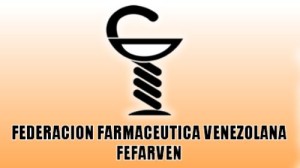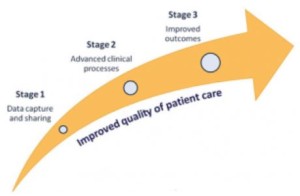- Pharma companies turn to LinkedIn to engage (mmm-online.com)
While the three granddaddy social networks, Facebook, Twitter and YouTube, have spent a decade publicly duking it out for share of human attention-span and commercial usefulness, LinkedIn has quietly and efficiently evolved to become an essential pillar of corporate practice, for individuals and organizations alike...LinkedIn has been something of an enigma and part of the reason has been the difficulty of pinpointing its core purpose. For a long time, it was seen as a professional advancement network, crudely dubbed “Facebook for jobs.” But while career advancement and recruitment is still a major function, over time LinkedIn has evolved into an effective publishing platform for professional content, which has had profound implications for corporate communications and marketing activities...A big part of LinkedIn's appeal lies in the high level of engagement of its members and the potential for precise targeting of content...In the healthcare space, membership encompasses all stakeholder groups: pharma companies, patients, healthcare professionals, marketing agencies, hospitals, investors and, of course, employees...The evolution of LinkedIn...to a publishing platform has had a profound effect on social-media responsibilities within pharma organizations...LinkedIn is now a fully fledged communications vehicle...Regulatory considerations are obviously paramount with any pharma-generated social-media activity...
- Retail Pharmacist MTM Roles Supported by US House (pharmacytimes.com)
More than 40 members of the House of Representatives have expressed support for greater pharmacist roles in improvements made to Medicare Part D’s medication therapy management program...CMS announced plans to improve MTM with its Part D Enhanced MTM model in September 2015. The enhanced model aims to look at additional incentives and flexibilities to achieve the goals of the program...Some of those goals include increased communication with pharmacists, prescribers, and patients; improved patient knowledge; reduced medication problems; and improved compliance with medication protocols...The enhanced MTM model test will launch in January 2017...Some of the medication adherence concerns that the Congressional members noted were:
- Nonadherence costs the United States $290 billion annually and makes up 13% of total health care expenditures.
- Patients with several chronic conditions comprise two-thirds of all hospital admissions and are 100 times more likely to have a preventable admission.
- These patients with several chronic conditions visit many different physicians in a year and receive around 50 prescriptions annually on average.
- MTM is currently poorly integrated into health systems.
Congressional leaders called for retail pharmacists to be included in the enhanced MTM models that will be tested, citing how pharmacists have been shown to improve patient health, reduce costs through fewer hospitalizations and readmissions, and increase patient involvement in their own medication management...Our seniors deserve the most robust and effective MTM program possible—one that includes the utilization of the most trained and highly skilled providers medication management services: local retail community pharmacists...
- Drug pricing will continue to loom large for pharma in 2016 (statnews.com)
As the year winds down, STAT reporters are taking a look at the stories they’re most eager to track in 2016...Of all the health care issues that loomed large this past year, none was more controversial — and compelling — than pharmaceutical pricing...Wall Street may have cheered the added revenue, but pricing strategies were increasingly under attack. Poll after poll found most Americans believe prices are too high. And more lawmakers — and presidential candidates — are listening...At the center of it all was Martin Shkreli, the 32-year-old “pharma bro” who single-handedly created a furor by jacking up the cost of an old, life-saving drug and repeatedly taunting his critics. Shkreli was arrested this month for securities fraud and ousted from the two drug companies that he ran. But while he may be out of the picture, pricing will remain a flashpoint in the year ahead...Here’s a look at what to expect on pricing — and on other key issues that are likely to engulf drug makers, regulators, and patients in 2016.
- Count the cost
- New commish
- Read the label
- Big deals
- Figure of speech
- Google’s next big idea: Mining health data to prevent disease (statnews.com)
Dr. Jessica Mega…medical director of Google Life Sciences…to lead the new firm’s ambitious quest to analyze genomic, molecular, and imaging big data from 10,000 volunteers to figure out what it means to be healthy — the so-called baseline study…Its experts try to turn blue-sky ideas into products by cross-pollinating medicine, engineering, and data science…I’m normally around physicians and patients. Now I spend my days with amazing engineers. The things you hear around here are “try to fail fast,” and “let’s just try ideas.” What I’ve taught myself to do is first say “yes” and try to be very open, then get analytical and move to a point where we’re being strategic and tactical…The way I think about it is trying to understand more about a given individual so they get the right treatment, get the right medications, and avoid the side effects. We’re trying to figure out ways to help empower people so that they don’t need to spend as much time in hospitals…People don’t want a lot of unnecessary, expensive, cumbersome, inaccurate tests. But we’re working to come up with things that provide actionable information.
- Venezuela needs urgent foreign medical aid, pharma group says (reuters.com)
With scores of medicines in short supply due to a severe financial squeeze, Venezuela is suffering a "humanitarian crisis" and requires rapid international assistance, according to a major pharmaceutical association...The Venezuelan Pharmaceutical Federation (Federación Farmacéutica Venezolana) listed 150 medicines, from those for hypertension to cancer, as well as basics such as prophylactics and antibiotics, which are scarce in the OPEC nation of 29 million people..."The national government must accept we are in a humanitarian crisis in the health sector, with patients dying across our territory for lack of medicines," said association president...The health ministry did not respond to a request for comment on the pharmaceutical association's statement, but Venezuela's socialist government has bristled at criticism of its health system...It accuses local groups of exaggerating problems and says the widespread shortages in Venezuela - of food as well as medicines - are due to an "economic war" by foes...Long lines form daily outside pharmacies, and doctors and patients constantly complain of lack of medicines and equipment.
- Many medications actually became cheaper this year — but that doesn’t mean Americans are paying less overall (washingtonpost.com)
Skyrocketing drug costs became the stuff of congressional hearings and presidential campaign speeches in 2015...The federal government announced this month that prescription drug spending hit $297.7 billion last year -- up more than 12 percent...A new generation of specialized drugs and price hikes on existing medications helped to drive that spike...If there's a bright spot amid the troubling rise in the cost of prescription drugs, perhaps it is this: Many of the most widely used generic drugs actually were cheaper at the end of 2015 than when the year began, according to an analysis released...by...GoodRx...The reality is that about 85 percent of drugs taken in this country are generic...Those are surprisingly inexpensive and getting less expensive, in many cases...For [many] generic drugs, there's a lot of competition...while the retail price of some drugs decreased by 30 percent or more, some generic drug products had...extraordinary, price increases...the rate of generic price declines has been slowing for the past decade, indicating that the era of consistent generic drug price decreases may be coming to an end...it's a complicated...exercise to determine what any person, company or insurer pays for a particular drug...The system is opaque...Between changing insurance premiums, greater overall health-care costs, the arrival of new high-priced therapies and the ongoing possibility of price spikes in once-cheap drugs, many patients can count on continuing worries about the impact on their pocketbooks.
- Lack of cyber security draws hackers to hospital devices (ft.com)
Imagine if simply typing “password123” into a computer did not open your email account, but an internet-connected medical device responsible for feeding you drugs or monitoring your blood oxygen or insulin levels...It may sound like the nightmare stuff of fiction, but the lack of basic cyber security on hospital equipment is attracting hackers who want to use them as a way to enter medical networks...Experts say that while they have not yet seen someone die as a result of hacking, the risks are growing...Motives for attacks could range from wanting to harvest patient information or stealing intellectual property from medical trials to simply wanting to create chaos...Devices with default passwords that are left unchanged, and outdated operating systems that are connected to the network, such as medical databases, are all too common in healthcare...Each provider needs to carefully examine for themselves what types of risk are being brought in by new devices. They will have to give careful consideration to making sure they are kept up to date, behind firewalls and in networks segmented off from key medical and personnel data…
- Interactive Pharmacist Counseling Could Optimize Patient Outcomes (pharmacytimes.com)
Patients may be more likely to retain information about their prescribed medications when the pharmacist-patient relationship becomes a 2-way conversation... A recent study published in the Journal of the American Pharmacists Association suggests that more interactive conversations between the pharmacist and patient can more than double the likelihood that the patient will understand how to take their medications properly....“The benefit of the interactive counseling technique is the fact that the patient can let the pharmacist know upfront what they know about their medications. The pharmacist can then fill in the knowledge gaps...The increased health literacy resulting from these more substantive conversations is strongly associated with greater medication adherence, which is widely considered one of the most crucial components of the value-based care model and optimized patient outcomes...This is the first real analysis to prove that [the interactive approach] works, and that the approach could be extremely important for health care in America...
- Outcome-based healthcare needs outcome-based marketing (fiercepharmamarketing.com)
Pharma can no longer put off the inevitable when it comes to outcome-based models in healthcare. In 2016, drugmakers will begin to engage more not only when it comes to pricing models, but also when it comes to marketing...But what is outcome-based marketing? In mainstream marketing, it usually refers to linking ad campaigns to quantifiable results. Did the ads or marketing draw more customers or an increase in web traffic?...pharma companies are largely already doing that...We're taking a broader view of the outcome model...and looking for outcome marketing that aligns with outcome pricing models. That is, creating advertising, promotions and lifestyle tool communications that clearly relay to patients, caregivers, doctors and healthcare providers exactly what they get for their money...While widespread changes may take years to play out, we think that with some drugmakers already on board, this year could be a bellwether for even more transparent and direct communications, along with the chance for more and better customer connections.
- 9 organizations urge Congress to oppose delay of Stage 3 (healthcareitnews.com)
Health IT Now, along with eight other organizations…are calling on Congress to stay the course on Stage 3 of the Meaningful Use EHR Incentive Program…Health IT Now describes itself as a broad-based coalition of patient groups, provider organizations, employers and payers…The coalition, along with eight other organizations made their pleas in a…letter…"We write to urge you to oppose any legislative changes to the meaningful use program, including delays in the timing of Stage 3, that do not also include reforms to improve the interoperable use of health information technology,"…"Delay without reform would rob taxpayers and patients of cost savings while doing absolutely nothing to make the program work well for overburdened doctors and hospitals."…The American Medical Association and 111 other national and state medical societies called for delay of Stage 3 in an earlier letter to leadership...








